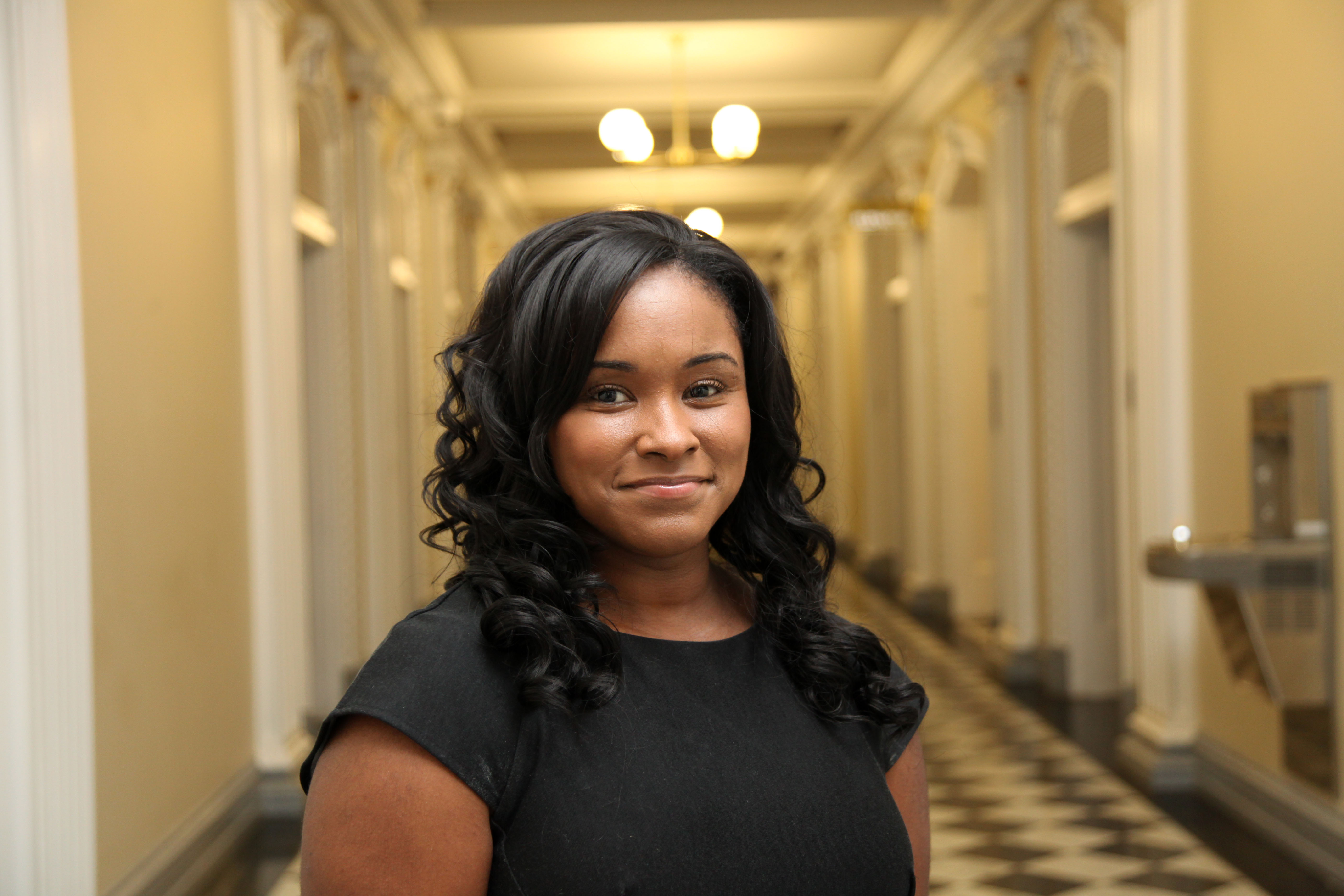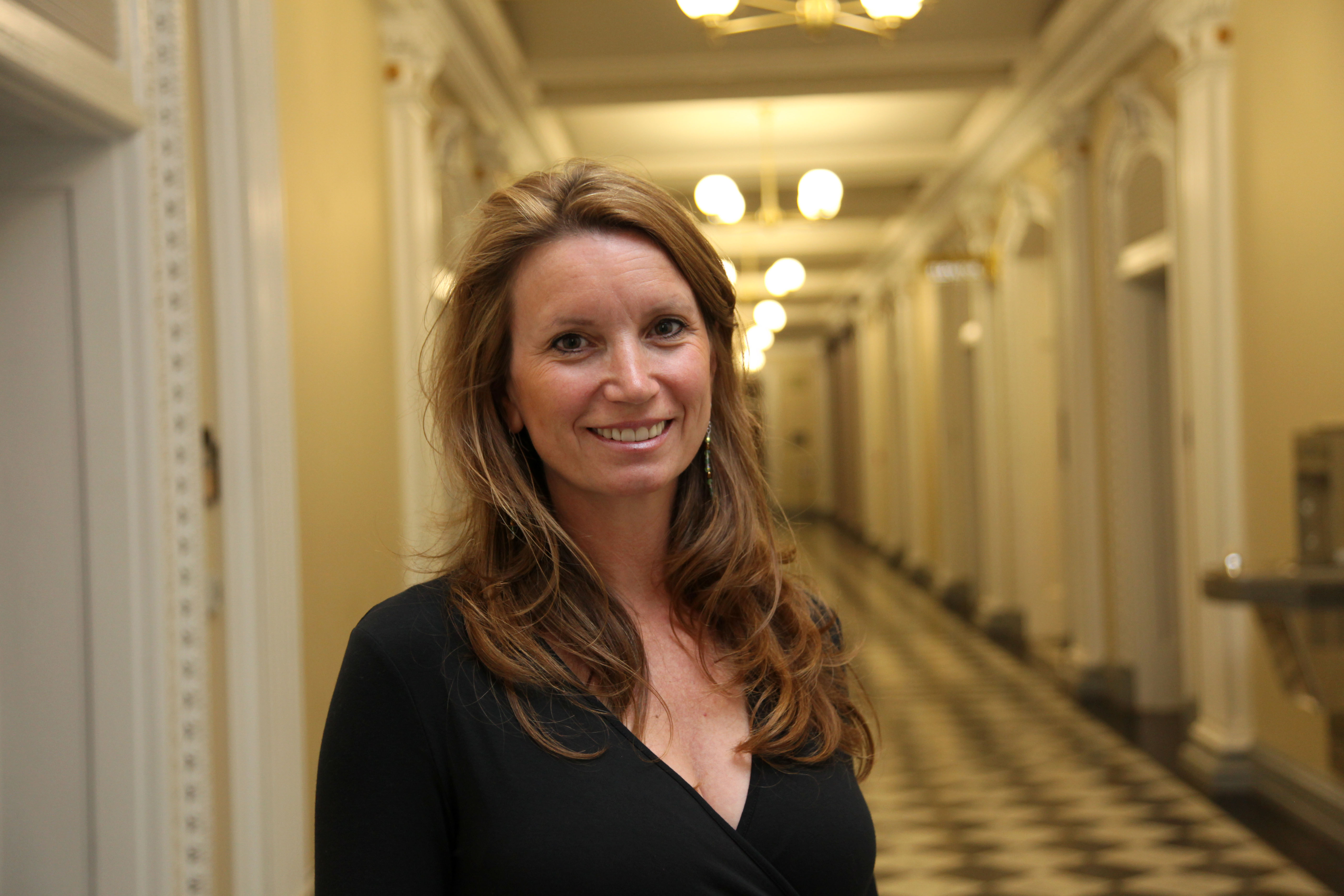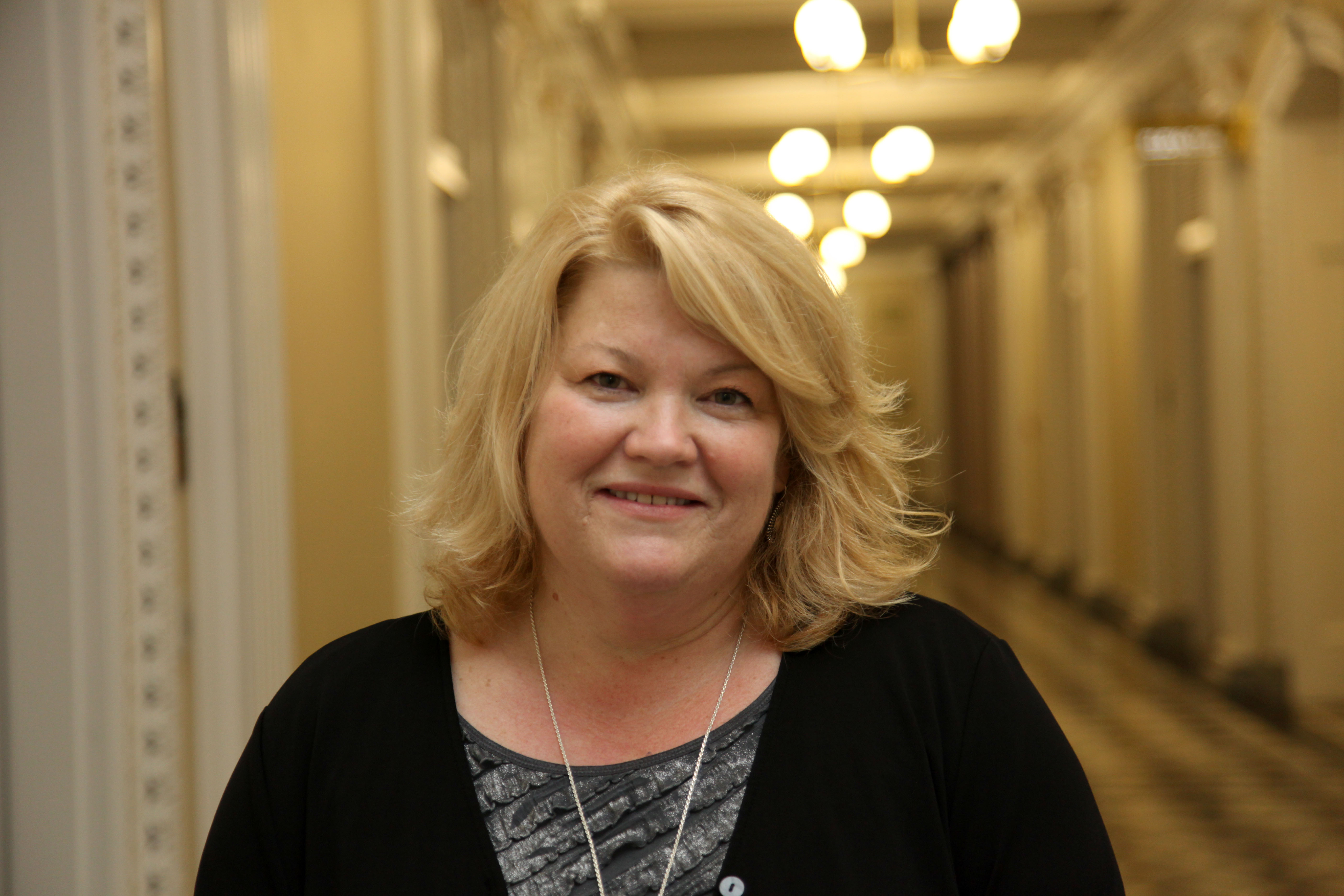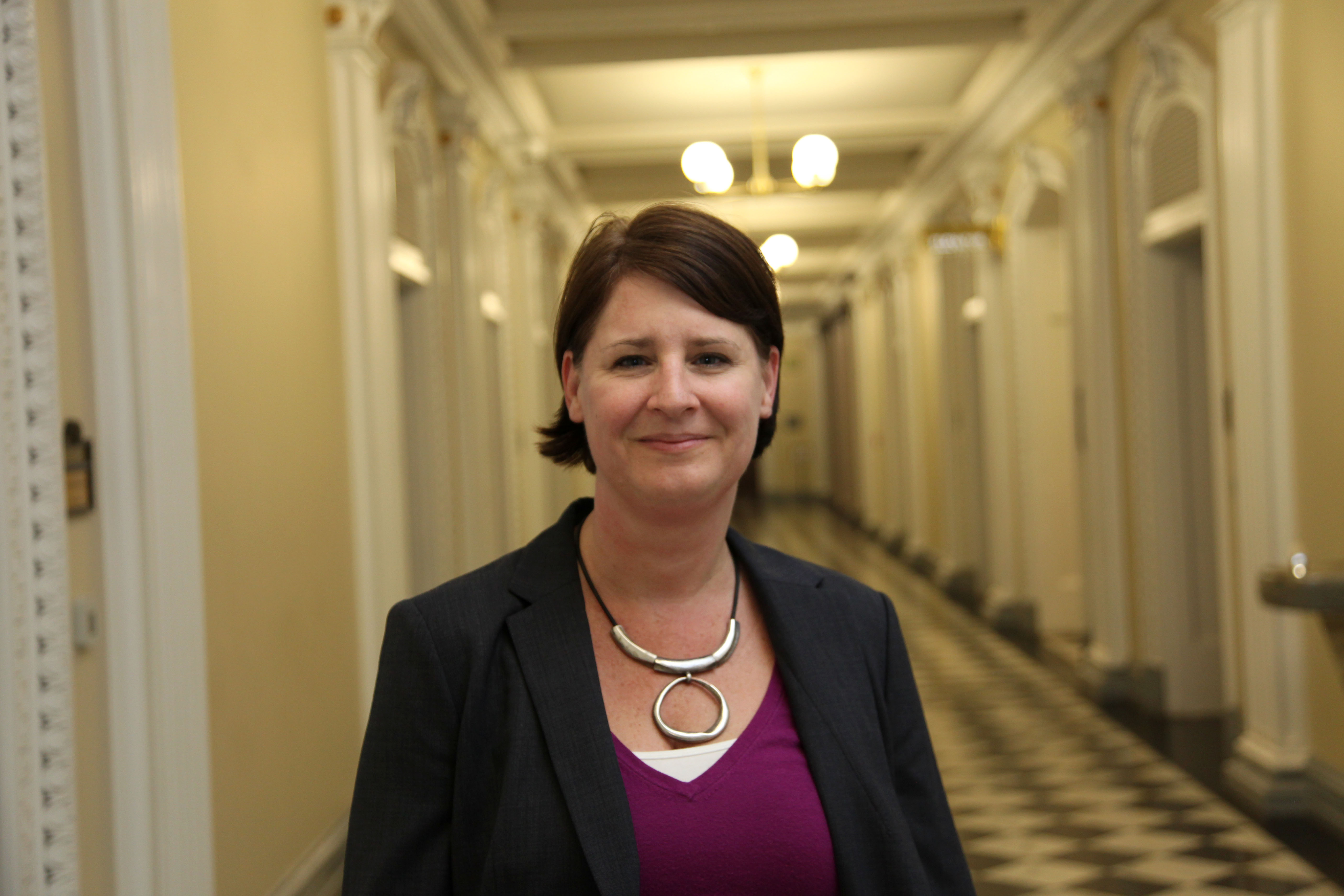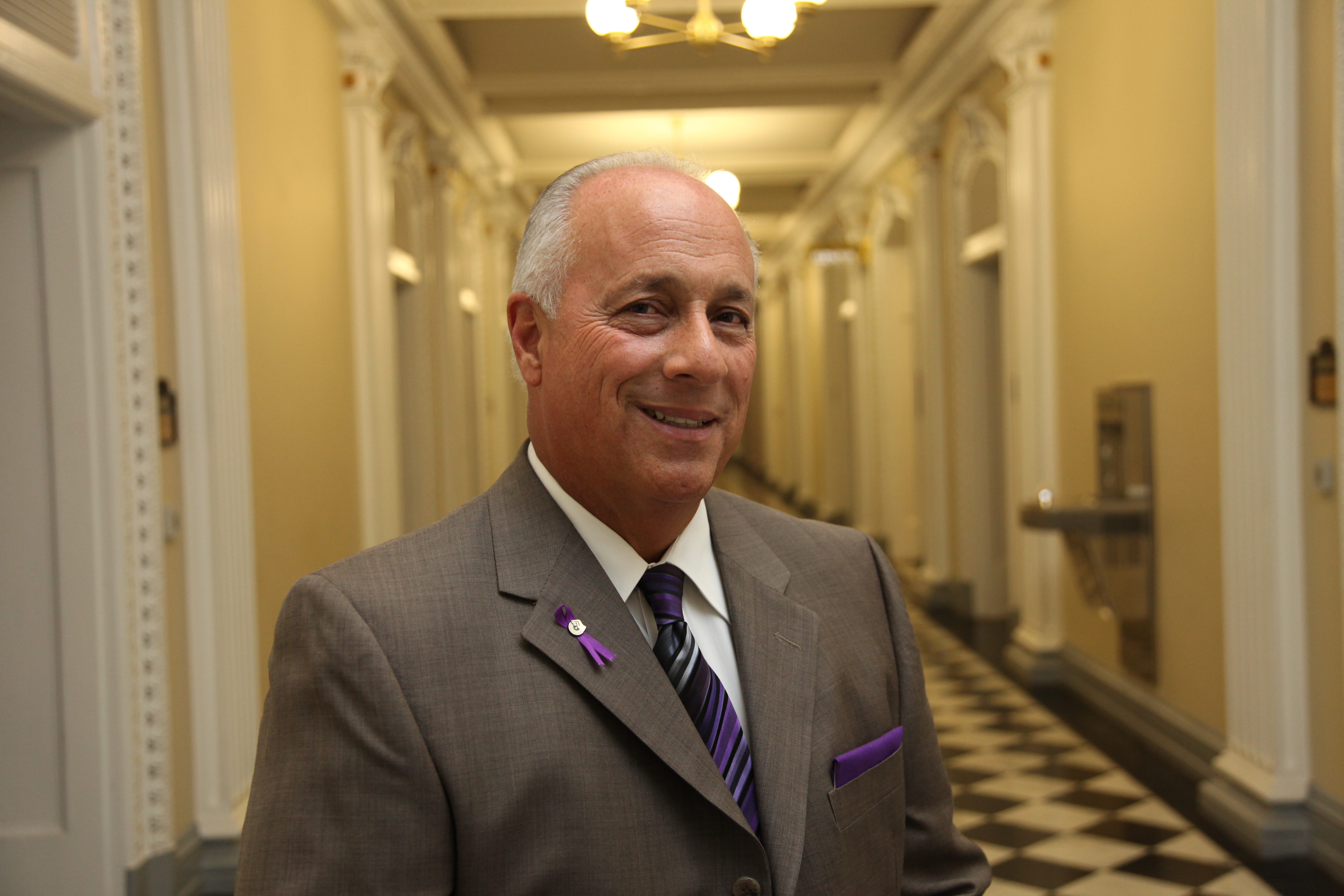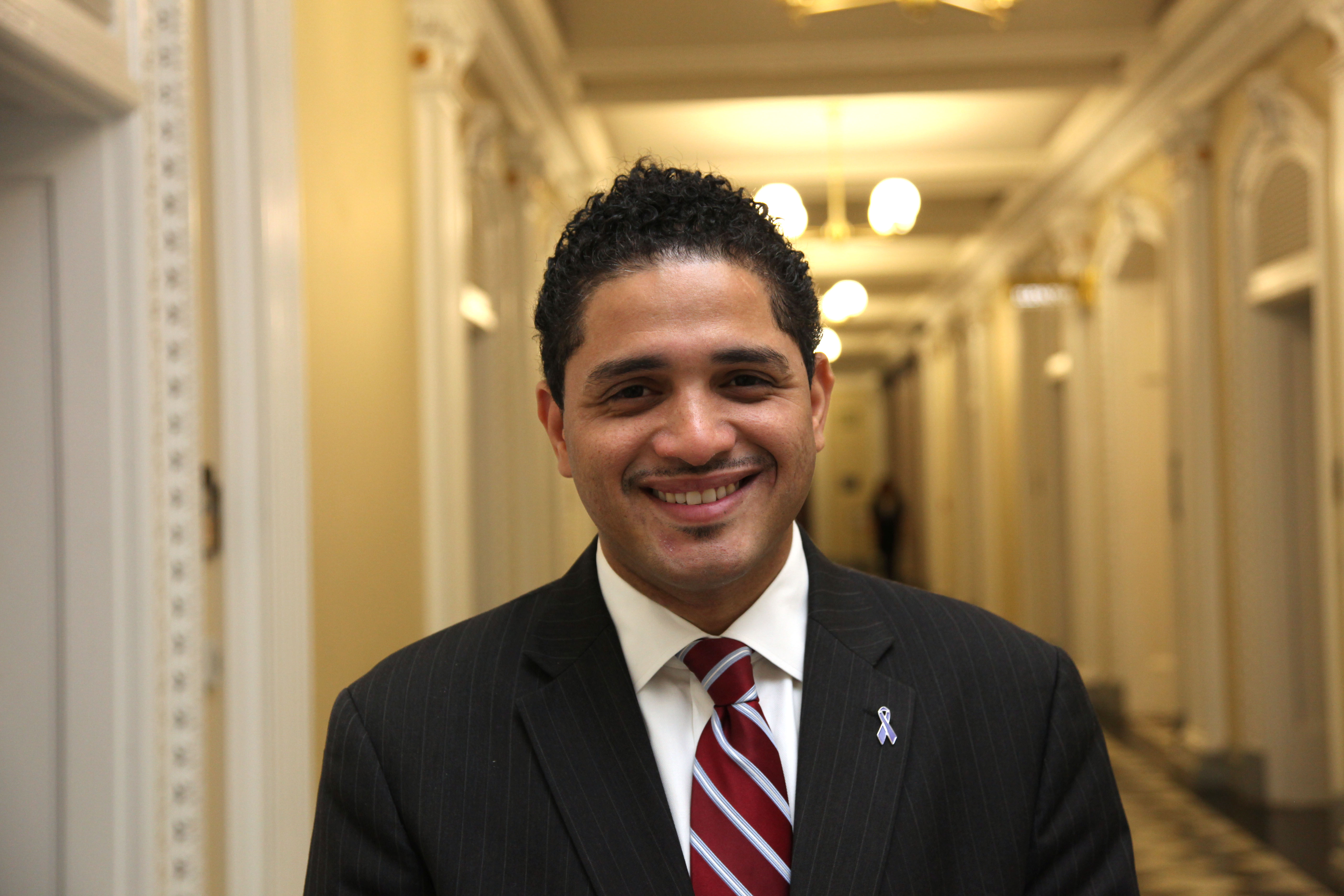Champions of Change Blog
Ending Violence Against Women at Historically Black Colleges and Universities: Generating a Movement
Posted by on November 2, 2011 at 5:21 PM EDTEd. Note: Champions of Change is a weekly initiative to highlight Americans who are making an impact in their communities and helping our country rise to meet the many challenges of the 21st century.
Last Thursday, I was honored to have been recognized by the White House as Champion of Change for my work with The Wright Group (TWG) in launching Ending Violence Against Women (EVAW): The HBCU Project--an initiative developed to assist Historically Black Colleges and Universities (HBCUs) expand their institutional capacity and action plans to ending violence against women.
I willingly admit that this work is more challenging than any project I have undertaken, however it is also more rewarding and fulfilling than I could have ever imagined. For me this work is not just what I do every day as a professional but this is a personal commitment. Because of my dedicated energy on this issue many people often ask me why am I so passionate about ending violence against women---as they often suspect that I myself am a survivor. However, to their surprise I am not---I am proud bystander. As a teenager, college student, friend and family member I have been in arms reach of resilient women and young girls who are survivors and as a bystander I do this work because ‘this is the change I want the next generation to see in the world’.
Learn more about WomenAn Incredible Journey
Posted by on November 2, 2011 at 3:58 PM EDTEd. Note: Champions of Change is a weekly initiative to highlight Americans who are making an impact in their communities and helping our country rise to meet the many challenges of the 21st century.
There are moments etched in my mind like snapshots from last week. I went to Washington to be honored with 14 others as a Champion of Change for my work in trying to end sexual assault and domestic violence. One moment I remember clearly is walking up to the steps of the Eisenhower building. There were so many steps, and as I was ascending them I thought about all the people who have walked up and down them trying to change the nation and make a difference. It was like being in an invisible parade of people who believed they could make a difference, and it felt both grounding and inspiring.
I remember handing one of the staff members of the White House travel kits from Thistle Farms, the social enterprise of Magdalene. The journey the kits made to get to the White House was incredible. The products inside the kits are all made in Nashville by residents and graduates of Magdalene at Thistle Farms. Magdalene is two year residential community with six homes for women who have survived lives of violence, abuse, prostitution, addiction and traumatic childhoods. The average age the women of Magdalene are first sexually assaulted is between the ages of 7 and 11. There are currently 35 women from Magdalene who work and run Thistle Farms.
Learn more about WomenWorking to Predict and Prevent Domestic Violence
Posted by on November 2, 2011 at 1:28 PM EDTEd. Note: Champions of Change is a weekly initiative to highlight Americans who are making an impact in their communities and helping our country rise to meet the many challenges of the 21st century.
My name is Suzanne Dubus and I am the CEO of the Jeanne Geiger Crisis Center in Newburyport, MA. I was one of the champions honored at the Champion of Change event held at the White House last week - which was thrilling! I was so honored to be on that podium with the other Champions and hope that our work allows us to work together in the future.
The Jeanne Geiger Crisis Center is entering its 30th year of operations but the focus for the last seven years has been about preventing domestic violence homicide. In 2002, we experienced first-hand the pain of not being able to save the life of a client, Dorothy Giunta Cotter, who opted to remain in the community with a protective order and a safety plan. We knew Dorothy’s case was potentially lethal: we knew her husband had taken her hostage in the past, had strangled her with a telephone wire, and had threatened to kill her if she ever left him. Yet Dorothy did not want to flee to a shelter and disrupt the lives of her children. She did everything we asked of her: she worked with the police and the courts; we retained legal counsel for her; and she was working with advocates.
Learn more about WomenBringing LGBTQ Voices to the Conversation About Intimate Partner Violence
Posted by on November 2, 2011 at 11:24 AM EDTEd. Note: Champions of Change is a weekly initiative to highlight Americans who are making an impact in their communities and helping our country rise to meet the many challenges of the 21st century.
At the New York City Anti-Violence Project we work every day to make lesbian, gay, bisexual, transgender and queer (LGBTQ) people visible and included in the work that will end intimate partner violence. So it was a particular honor for AVP, and for me and Senior Domestic Violence Counselor/Advocate Victoria Cruz, to bring an LGBTQ voice to the conversation among the extraordinary activists that were honored. By including AVP as a Champion of Change, the White House is including LGBTQ people, and all people, in strategies to end this violence. There are things that each of us can do to follow this example.
As a first step, we need to broaden the language that we use in working to prevent and end this violence. Intimate partner violence (IPV) occurs at the same rates in LGBTQ communities as in any other community: in 25 percent to 33 percent of our relationships. There is emerging research that suggests that transgender people experience IPV at higher rates. So to truly end intimate partner violence we have to shift the way we talk about this violence to include LGBTQ survivors. We can expand our language about intimate partner violence from something that only happens to women at the hands of men to words that recognize that many people are abused by their same-sex partners. Talking about intimate partner violence, instead of violence against women, is one way to include lesbian, gay and bisexual survivors of intimate partner violence. We also need to explicitly and specifically include transgender and gender non-conforming people in these discussions.
Learn more about WomenA Committment to Protect and Serve Those in Need
Posted by on October 31, 2011 at 9:08 AM EDTEd. Note: Champions of Change is a weekly initiative to highlight Americans who are making an impact in their communities and helping our country rise to meet the many challenges of the 21st century.
On October 20, 2011, I was humbled and honored to be one of 14 recipients who were recognized at the White House as a ‘Champion of Change’ for work helping victims of domestic violence. For me, it is truly a commitment of passion!
As a 30+ year veteran law enforcement professional, I have seen the pain in the eyes of children and women who live in constant fear of violence in their home. In ‘crime prevention,’ we tell our citizens to lock their doors and call if they see something suspicious in their neighborhood. And they often do call, for barking dogs, a loud party of if they see shadows lurking in the dark. All too often the shadow lurking in the dark is a ‘loved one’ whose rage and violence is turned towards the children or women, locked inside that home.
In 1997, Palm Beach County (Fl) Sheriff, Robert Neumann, a former FBI supervisor, saw the devastating toll domestic violence was taking on his citizens. Aware of my background in combating domestic violence, we set out on a new approach to open this secret behind closed doors. As the domestic violence Coordinator, we led the effort and sought to create a Coordinated Community Response to domestic violence. It took the leadership of law enforcement, the prosecutor, the courts and most importantly, the domestic violence advocates to come together. We had three goals: to hold abusers accountable for their actions; to protect those experiencing domestic violence and their children and to provide a seamless link to advocates, anytime of the day or night.
We created a community awareness program, sending a strong message to abusers, but more importantly, letting those being victimized, know we were there to help. The public awareness campaign sent a message, through, every avenue possible, Public Service Announcements; public speaking engagements at every conceivable event possible; TV and radio interviews of law enforcement officials all with one intent: If you lived behind those closed doors and were experiencing violence, we wanted you to know advocates were only a phone call away and could provide services for you. And sure enough, our calls went up! Those experiencing domestic violence began calling at an earlier and less lethal incident. They no longer waited until a knife or gun came into the picture. They started calling when a hand was raised as a threatening fashion.
When police responded to a call, officers immediately put the victim on the phone, at the scene with an advocate from a certified Domestic Violence Center who provided them with care, concern and with the specific set of services for that individual and their family.
Prior to this initiative in 1997, there were sadly, 7 domestic violence homicides and a reported 4,439 crimes of domestic violence. After taking an aggressive approach to combating domestic violence through the Coordinated Community Response initiative, in some subsequent years, the annual homicide dropped to 1 for two of the following years. And, although the population has grown by nearly 200,000 people, in 2010 there were 4 domestic violence homicides and the reported crimes were reduced to 2,356.
Additionally, a far reaching, collaborative effort establishing a police protocol to responding to domestic violence calls was put forth. Ten service agencies, including the two certified domestic violence Centers sixteen law enforcement agencies and the prosecutor’s office, joined together to show the community AND those experiencing domestic violence, they were there to help!
Today, even more so, it is so vitally important for communities to work together. With limited resources for in-depth training to respond to domestic violence calls, it is imperative that the police at the scene are thorough in their evidence collection. They must ensure that the case is well documented so the prosecutor can demonstrate that he has the means to move forward with the case. At the same time, we must make certain, those experiencing domestic violence have access to life saving and life changing services so she can look to a violence free future for herself and her children!
Vincent Mazarra was a law enforcement professional for 30+ years, starting his career as a Detroit Police Officer; with the hope of helping and changing peoples’ lives. He now works for the Florida Coalition Against Domestic Violence working with police, prosecutors and families.
Learn more about WomenThe ‘Champion of Change’ Is Inside Each of Us
Posted by on October 29, 2011 at 4:30 PM EDTEd. Note: Champions of Change is a weekly initiative to highlight Americans who are making an impact in their communities and helping our country rise to meet the many challenges of the 21st century.
I was honored to be selected among the many ‘Champions of Change’ being recognized at the White House during National Domestic Violence Awareness Month.
Never in a million years could I have imagined that I would be advocating on behalf of victims and survivors of domestic violence locally, nationally and internationally. After witnessing my 30-year-old mother, Jacqueline and 12-year-old brother, Anthony shot and killed in our living room at the age of 10, the world as I knew it had ended. I travelled down the horrible path of suicidal ideation, depression and loss of self worth. It was my grandmother who rescued my siblings and me and worked to provide an emotionally and physically safe environment.
A critical turning point in my life occurred at 13 years of age when I wanted to take my own life. My assistant principal, Mr. Christian intervened and called my grandmother to arrange an emergency therapy session with Ms. Pierre, a social worker. Their collective and coordinated efforts put me on the road to recovery.
With a unique perspective and renewed sense of self-worth, I awaken each day with passion and fervor to address the issue of domestic violence that affects at least 1 in 4 women and 1 in 13 men in our country.
Today, I live out my passion through two organizations, The William Kellibrew Foundation and the National Coalition on Black Civic Participation. At the Foundation, I serve as the president and spokesperson and for the National Coalition, I serve as the deputy director and national victims’ advocate. Both organizations allow me the opportunity to share my personal story of tragedy and triumph.
- &lsaquo previous
- …
- 147
- 148
- 149
- 150
- 151
- 152
- 153
- 154
- 155
- …
- next &rsaquo
White House Blogs
- The White House Blog
- Middle Class Task Force
- Council of Economic Advisers
- Council on Environmental Quality
- Council on Women and Girls
- Office of Intergovernmental Affairs
- Office of Management and Budget
- Office of Public Engagement
- Office of Science & Tech Policy
- Office of Urban Affairs
- Open Government
- Faith and Neighborhood Partnerships
- Social Innovation and Civic Participation
- US Trade Representative
- Office National Drug Control Policy
categories
- AIDS Policy
- Alaska
- Blueprint for an America Built to Last
- Budget
- Civil Rights
- Defense
- Disabilities
- Economy
- Education
- Energy and Environment
- Equal Pay
- Ethics
- Faith Based
- Fiscal Responsibility
- Foreign Policy
- Grab Bag
- Health Care
- Homeland Security
- Immigration
- Innovation Fellows
- Inside the White House
- Middle Class Security
- Open Government
- Poverty
- Rural
- Seniors and Social Security
- Service
- Social Innovation
- State of the Union
- Taxes
- Technology
- Urban Policy
- Veterans
- Violence Prevention
- White House Internships
- Women
- Working Families
- Additional Issues

